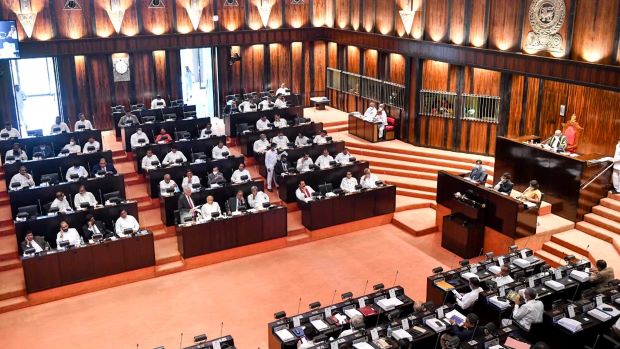COLOMBO – Sri Lanka’s Parliament passed the 2024 budget with key measures to implement a reform agenda agreed with the International Monetary Fund (IMF) by 41 majority votes on Wednesday (13).
The budget of President Ranil Wickremesinghe, also the finance minister, was approved with 122 legislators voting in favour, against 81 in the 225-member Parliament.
The budget included measures to increase revenue through taxes, making tax files mandatory, and salary increases for public sector employees.
“We have no option other than this,” President Wickremesinghe told the Parliament before the last day budget debate was started.
“Under this option, we had to seek IMF assistance and restructure the debts. We have done both. If we don’t go in the path, we will be bankrupt again.”
“Successive governments have not increased water tariffs for 11 years. The electricity tariff has not been increased for many years. We always managed with foreign debts for day-to-day spending.”
Wickremesinghe separately raised the Value Added Tax (VAT) by 3% to 18% and revoked exemptions for many goods including fuel. The Cabinet this week approved to reduce the threshold for VAT to 60 million rupees from 80 million.
Already people have been grumbling against higher taxes while government servants including some politically motivated trade unions have been protesting against than lower-than-expected salary hike of 10,000 rupees.
Wickremesinghe’s budget has set a fiscal deficit target of 2.85 trillion rupees in 2024, or 9.1% of the GDP, higher than the revised 8.5% of GDP in the current year. The original target for this year was 7.9%.
-economynext.com



Comments are closed, but trackbacks and pingbacks are open.